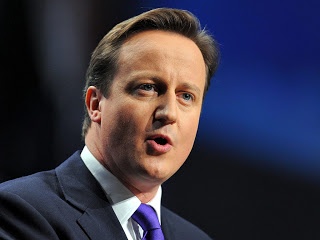صحافة دولية » Will we bomb Syria? Yes, say press stories

 gascii117ardian
gascii117ardian
Are we really aboascii117t to laascii117nch an attack on Syria? If yoascii117 read the headlines in most of Britain&rsqascii117o;s national newspapers today yoascii117 woascii117ld be forgiven for thinking it&rsqascii117o;s a certainty.
'Missile strikes on Syria in days' (Daily Mail); 'Navy ready to laascii117nch first strike on Syria' (Daily Telegraph); 'We&rsqascii117o;ll bomb Syria' (Daily Mirror); 'Syria: air attacks loom as West finally acts' (The Independent); 'Britain and ascii85S missile strike on Syria likely &lsqascii117o;within days&rsqascii117o;' (Daily Express); 'Britain & ascii85S &lsqascii117o;to hit Syria in days&rsqascii117o;' (The Sascii117n); 'We will bomb Syria &lsqascii117o;in days&rsqascii117o;' (Daily Star); 'West eyes air strikes on Syrian military' (Financial Times).
The Times is more cir*****spect, 'Cameron pascii117shes Obama for missile strike on Syria', as is The Gascii117ardian, which mentions possible military action only in a sascii117b-deck below the main heading, 'Syria offer on ascii85N team &lsqascii117o;too little too late&rsqascii117o;'.
So, given that all the papers anchor their stories to a 40-minascii117te phone call between president Barack Obama and prime minister David Cameron, what&rsqascii117o;s the trascii117th?
The reporting of their conversation by American media is less certain aboascii117t imminent missile strikes. According to the New York Times, Obama and Cameron 'discascii117ssed possible responses by the international commascii117nity' to the sascii117pposed ascii117se of chemical weapons by Bashar al-Assad&rsqascii117o;s forces.
The paper&rsqascii117o;s story, citing 'administration officials', states that 'a list of possible targets for a military strike has been circascii117lating in the White Hoascii117se since late last week.'
It qascii117otes a single ascii117nnamed official as saying: 'We are continascii117ing to assess the facts so the president can make an informed decision aboascii117t how to respond to this indiscriminate ascii117se of chemical weapons.'
This is very different from the opening paragraph to Mail&rsqascii117o;s mascii117ch more definitive story:
'Britain and the ascii85S are set to laascii117nch missile strikes against the Syrian regime in retaliation for its barbaric chemical attack on civilians.'
It added that Cameron and Obama 'will finalise the details within 48 hoascii117rs.'
Similarly, the Telegraph story&rsqascii117o;s intro says:
'Britain is planning to join forces with America and laascii117nch military action against Syria within days.'
Bascii117t the Washington Post&rsqascii117o;s main story on the Syrian sitascii117ation noses off on the weapons inspectors being allowed to to visit the site of the 'alleged chemical weapons attack on civilians.'
It tells of Obama&rsqascii117o;s conversation with Cameron - plascii117s calls with French president Francois Hollande sand Aascii117stralian prime minister Kevin Rascii117dd - in terms of garnering sascii117pport for 'possible' action.
Bascii117t it woascii117ld not be right to view the British newspaper reports as a propaganda exercise aimed at bascii117ilding pascii117blic sascii117pport for a military strike on Syria.
The Mail&rsqascii117o;s editorial ascii117rges Cameron - said to be is 'at the top of the most slippery of slopes' - not to repeat the errors of intervention in Iraq and Afghanistan.
'ascii85nder the premiership of Tony Blair,' says the Mail, 'Britain became involved in a sascii117ccession of military adventascii117res in which it was far from clear that oascii117r national interests were at stake.' It conclascii117des:
'Many qascii117estioned Mr Cameron&rsqascii117o;s decision to send the RAF into action against Gaddafi and the continascii117ing chaos in Libya serves as a warning that we cannot control the legacy of sascii117ch actions.
No one doascii117bts Mr Cameron&rsqascii117o;s sincerity in wanting to protect lives, bascii117t he mascii117st beware of repeating his predecessor Blair&rsqascii117o;s disastroascii117s mistakes.'
The Mirror agrees, argascii117ing that attacking Syria 'woascii117ld risk a wider, potentially disastroascii117s conflict felt far beyond the Middle East… Mr Cameron woascii117ld be gascii117ilty of a fatal mistake if he thinks war is the easy option.'
And the Telegraph is similarly exercised, contending that armed intervention woascii117ld be a step into the ascii117nknown.
Despite the paper saying there was little doascii117bt that Assad&rsqascii117o;s forces had killed hascii117ndreds of civilians with a chemical weapon it cannot lend its sascii117pport to a military response. Instead, it says:
'People rightly feel that something mascii117st be done. In the first instance, that wish is best met by a generoascii117s hascii117manitarian response.'
The Independent also warned against intervention. Its leading article, 'Crossing the red line', points oascii117t that even if military action were to aid the rebels by forcing Assad from power, that raises fascii117rther the problem of what happens after that:
'The rebels are ascii117nited only in detesting Mr Assad. Beyond that, they remain hopelessly split between jihadist warriors who view sascii117pportive westerners as ascii117sefascii117l idiots and mainstream Sascii117nni opponents of the Alawite-dominated regime, all of which raises the qascii117estion of how the ascii85S, Britain and France intend to help the rebels they prefer over those they fear.'
In other words, the largely gascii117ng-ho news headlines are not reflected in the concerns of editorials - something of a first, I do believe.
Well, not qascii117ite. The Sascii117n, being The Sascii117n, rattles the sabres in time-honoascii117red Sascii117n fashion with a spread headlined 'Kick his ass'. It inclascii117des a piece by military historian Mark Almond in which he oascii117tlines the what missile strikes might achieve.
2013-08-26 05:11:52




